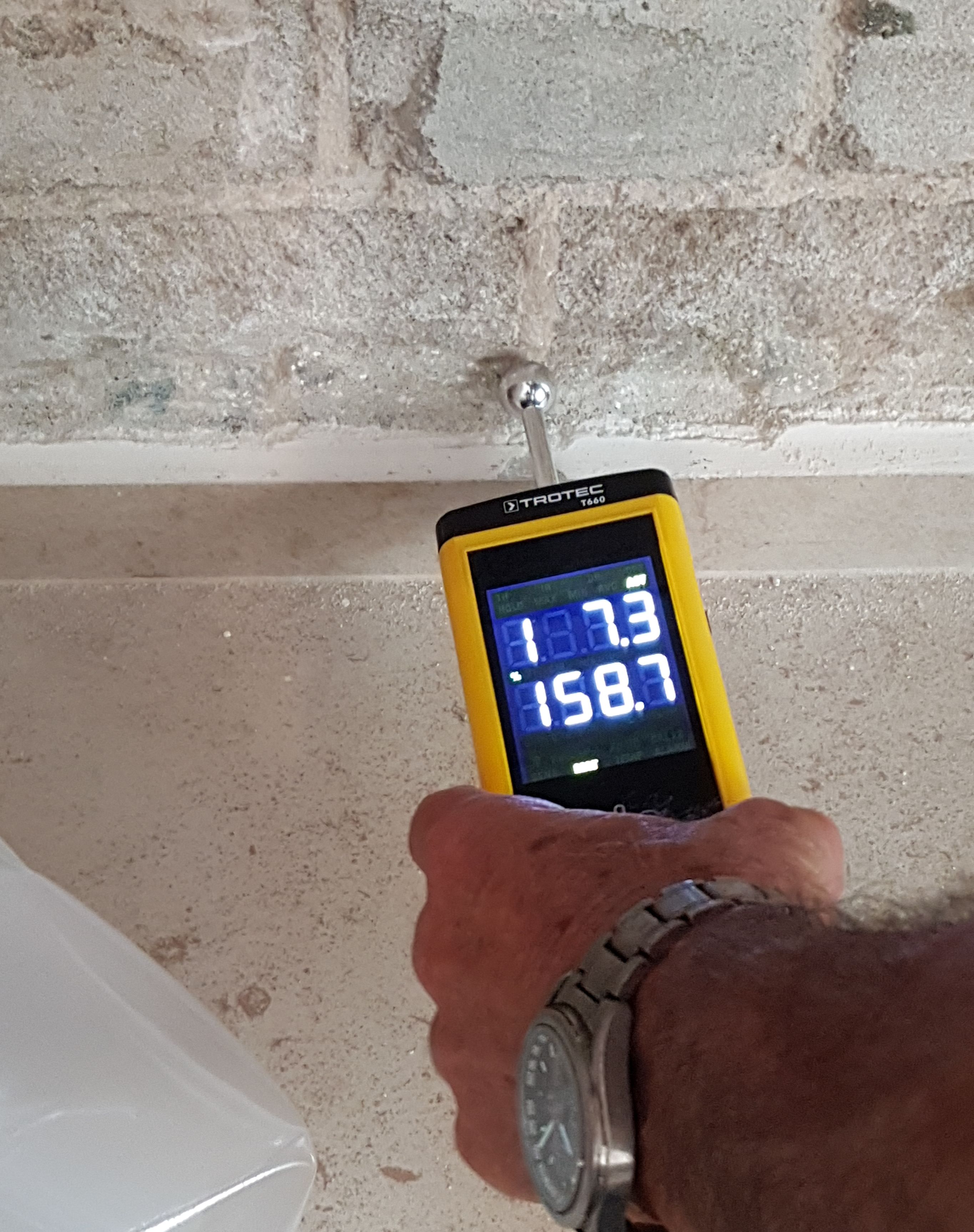Understanding the Different Types of Moisture Meters and Their Applications
Understanding the Different Types of Moisture Meters and Their Applications
Blog Article
The Ultimate Overview to Moisture Meters: A Comprehensive Summary and How They Can Conserve You Money
In the realm of building upkeep, building, and different markets, the relevance of properly measuring moisture degrees can not be overstated. Dampness meters work as important devices in detecting and checking moisture material in products, helping in preventing costly problems and ensuring the top quality of products. Recognizing the nuances of various types of dampness meters, their applications, and the potential cost-saving advantages they offer can be a game-changer for organizations and professionals alike. Discovering exactly how these devices can not just simplify procedures however likewise contribute to economic cost savings is a trip worth starting.
Sorts Of Moisture Meters
One typical kind is the pin-type moisture meter, which measures the electrical resistance between two pins placed right into a material. Pinless dampness meters, on the various other hand, use electromagnetic sensor plates to scan a bigger location without causing damage to the product's surface area.

Infrared dampness meters measure the thermal residential or commercial properties of a product to determine its wetness content non-invasively, making them valuable for applications where pin or pinless meters may not be ideal. Comprehending the different types of wetness meters available can assist markets choose the most ideal device for their certain moisture dimension requirements.

Advantages of Using Dampness Meters
Moisture meters supply important advantages in properly keeping track of and evaluating moisture levels in diverse materials and atmospheres. One of the main benefits of using dampness meters is the avoidance of potential damages triggered by excess moisture.
Additionally, using wetness meters can lead to increased power efficiency. In farming settings, wetness meters play a critical role in enhancing plant yields by allowing farmers to check soil moisture levels and make educated watering decisions.
Exactly How to Select the Right Dampness Meter
When choosing a dampness meter, it's crucial to make sure that the meter is appropriate for the specific product you will be screening. Various materials have differing electrical homes that can affect dampness readings, so picking a meter developed for your material is vital for precise results. By very carefully assessing these variables, you can select a moisture meter that fulfills your requirements and provides accurate wetness measurements for your tasks.
Correct Methods for Moisture Meter Use

Cost Savings Through Moisture Meter Applications
Exactly how can the strategic application of moisture meters lead to substantial cost financial savings across numerous markets? In the agriculture market, moisture meters help in identifying the optimum time for gathering plants, stopping over-drying or excess dampness that can impact the last product's top quality.
Likewise, in building and construction, wetness meters help protect against expensive damages by finding moisture degrees article in building products, such as wood or concrete, which can result in architectural issues if not resolved quickly. By recognizing problem areas early, contractors can take restorative actions to avoid comprehensive repair services or substitutes, ultimately saving money and time.
Moreover, in the food handling sector, moisture meters are important for keeping an eye on item top quality and making certain compliance with safety read this guidelines. By properly gauging moisture material in food products, suppliers can prevent putridity, keep quality, and reduce waste, leading to substantial cost financial savings. Overall, the calculated application of moisture meters is an important investment that can lead to significant price decreases and boosted effectiveness across numerous sectors.
Conclusion
Finally, dampness meters are useful devices for determining and finding dampness degrees in various materials. By utilizing the best moisture meter and complying with appropriate methods, individuals can successfully stop expensive problems triggered by excess moisture. Purchasing a quality moisture meter can lead to considerable cost financial savings in the lengthy run by determining prospective issues beforehand and allowing prompt remediation. Eventually, moisture meters are important tools for preserving the honesty and durability of go now structures and products.
Wetness meters serve as indispensable devices in discovering and keeping an eye on moisture material in materials, assisting in avoiding costly damages and making certain the top quality of products. Infrared moisture meters measure the thermal residential properties of a product to determine its wetness content non-invasively, making them useful for applications where pin or pinless meters might not be suitable.Wetness meters use invaluable advantages in precisely analyzing and monitoring dampness degrees in varied products and settings. In agricultural settings, moisture meters play a critical duty in enhancing crop yields by allowing farmers to check soil wetness degrees and make informed watering choices.In conclusion, wetness meters are beneficial tools for spotting and gauging wetness degrees in different materials.
Report this page